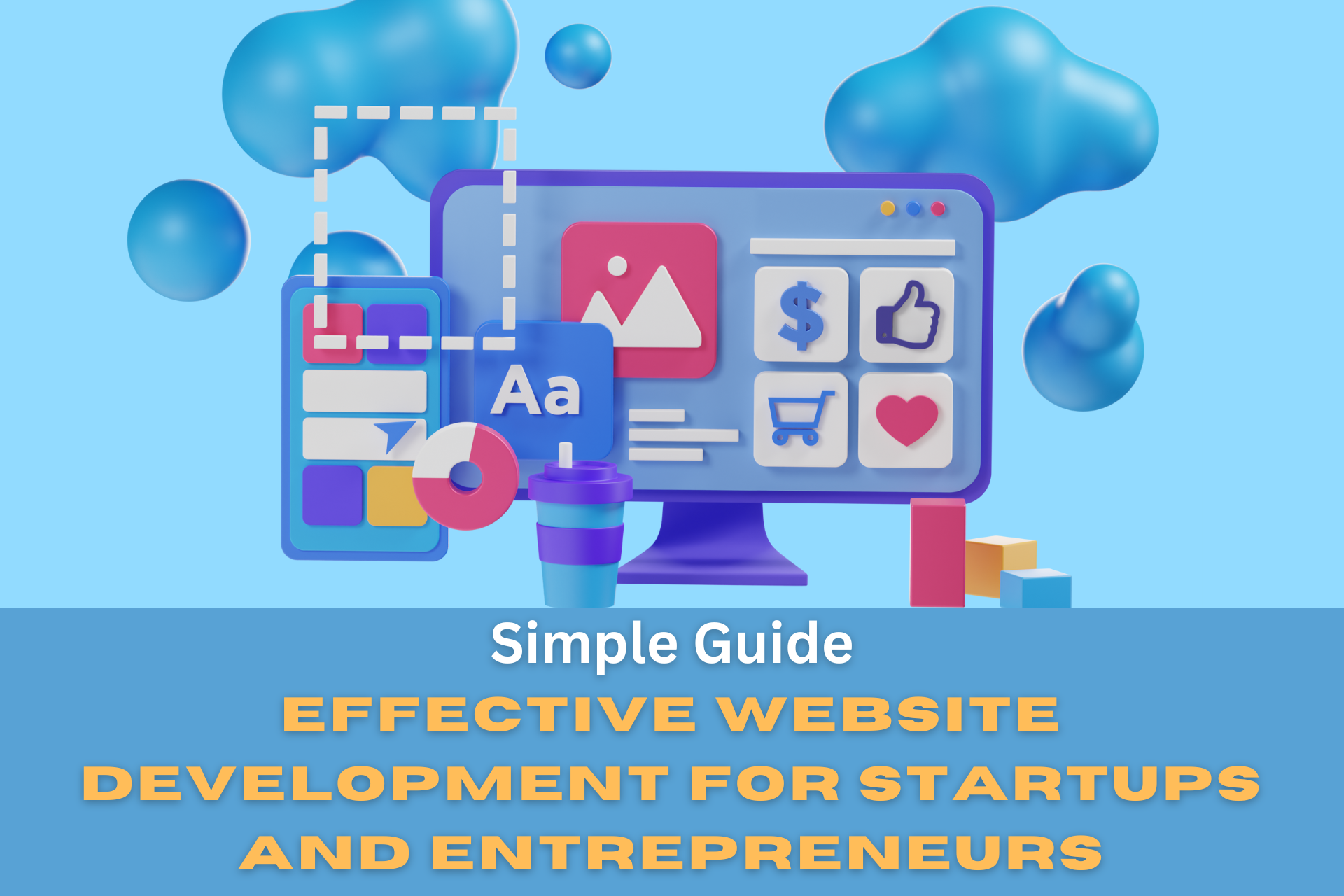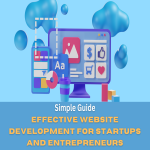In today's digital era, having a
professional and user-friendly website is essential for startups and
entrepreneurs to establish their online presence and attract customers. Here's
a simple guide to help you develop an impactful website.
1. User-Centric
Design:

·
Understand your audience: Research and
understand the needs and preferences of your target audience.
·
Keep it simple: Design a clean and
intuitive layout that is easy to navigate.
·
Make it visually appealing: Use
high-quality images, consistent branding, and engaging content.
·
Be mobile-friendly: Ensure your website
is responsive and looks great on all devices.
·
Continuously improve: Regularly update
your website based on user feedback and analytics.
2. Website
Development Best Practices:
þ Choose the right platform: Decide whether to use a website builder, CMS like WordPress, or
custom development.
þ Focus on usability: Prioritize user experience by optimizing load times, navigation,
and accessibility.
þ Optimize for SEO: Implement on-page SEO elements like meta tags, headers, and
content to improve search engine rankings.
þ Integrate analytics: Use tools like Google Analytics to track website performance and
user behavior.
þ Test thoroughly: Conduct usability testing and browser compatibility testing to
ensure your website works well across different devices and browsers.
3. Security
Measures:

·
Secure data: Implement SSL certificates
to encrypt data and protect user privacy.
·
Use strong authentication: Implement
secure login processes to prevent unauthorized access.
·
Follow best practices: Adhere to web
security standards and regularly update software to protect against
vulnerabilities.
·
Comply with regulations: Ensure your
website complies with data protection laws and regulations.
·
Backup regularly: Regularly
backup your website data to prevent data loss in case of emergencies.
4. Cost-Effective
Solutions:

·
Use templates or themes: Start with
pre-designed templates or themes to save time and money.
·
Opt for open-source solutions: Use
open-source platforms and tools to reduce development costs.
·
Prioritize features: Focus on essential
features that provide the most value to your users.
·
Optimize resources: Use cost-effective
hosting and CDN services to improve website performance without breaking the
bank.
·
Plan for scalability: Choose a platform
and architecture that allows for easy scaling as your business grows.
5. Keep
Updating and Improving:
·
Add fresh content: Regularly update your
website with new content to keep users engaged and improve SEO.
·
Stay updated: Keep abreast of industry
trends and technological advancements to stay competitive.
·
Fix issues promptly: Quickly address any
bugs, glitches, or security vulnerabilities to maintain a smooth user
experience.
·
Seek feedback: Encourage user feedback
and make necessary improvements based on their suggestions.
·
Monitor performance: Continuously
monitor website performance and analytics to identify areas for improvement.
Conclusion:
By following these best practices in
website development, startups and entrepreneurs can create a professional,
user-friendly, and secure website that drives growth and success. Whether
you're just starting out or looking to improve your existing website, investing
in website development is crucial for establishing a strong online presence and
achieving your business goals in today's digital world.







